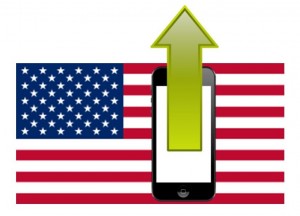As a standalone company, PayPal is adopting a mobile-first strategy
PayPal is now a standalone company being traded on the Nasdaq and it has adopted a mobile-first strategy. The company has come to establish a very prominent position in the mobile commerce space, where it has become one of the more influential entities therein. As the company has now become separate from its former owner eBay, PayPal will adopt a greater focus on the mobile sector. This focus may further increase the company’s standing in the mobile commerce market.
PayPal looks to expand its existing mobile solutions
According to PayPal CEO Dan Schulman, PayPal is set to become a mobile-first platform through the development of new mobile products. The company will also work to enhance its existing mobile solutions, which include those developed by Venmo, Braintree, and Xoom. Braintree, in particular, is expected to become a more prominent tool for PayPal, due to its expertise in the mobile commerce space.
Improving mobile platforms will allow PayPal to engage more consumers
 PayPal also intends to drive higher levels of engagement through the mobile space. Part of the company’s strategy involves the introduction of new services that will be used on a variety of mobile platforms. PayPal will be expanding its one-click purchasing feature, called One Touch. The company is also working on making its payment processing faster. PayPal has already succeeding in increasing this processing speed by 50%.
PayPal also intends to drive higher levels of engagement through the mobile space. Part of the company’s strategy involves the introduction of new services that will be used on a variety of mobile platforms. PayPal will be expanding its one-click purchasing feature, called One Touch. The company is also working on making its payment processing faster. PayPal has already succeeding in increasing this processing speed by 50%.
In-store mobile commerce is a new opportunity for PayPal
The company is also looking to capitalize on in-store mobile payments. These payments are becoming more popular among retailers that are looking for new ways of effectively engaging mobile consumers. In-store mobile payments may be a good opportunity for PayPal to expand beyond the digital space, as it can offer retailers with an effective way to participate in the mobile commerce sector. Several retailers have already embraced PayPal as a way to allow consumers to make purchases directly from their mobile devices, rather than having to use traditional forms of commerce, such as physical currency and credit cards.
Report highlights the ascent of the online payment services industry
The U.S. online payment services industry is expected to see sustainable and aggressive growth over the coming years, according to a new report from BMO Capital Markets. Mobile commerce, in particular, is expected to see a significant increase throughout the country through 2018. More consumers are showing interest in shopping and paying for products with their smartphones and tablets. Most of these transactions are being done online, more consumers are wanting to use their devices to make purchases in physical stores.
Mobile commerce expected to see CAGR of 40% through 2018
The report predicts that online payments will reach $2.4 billion by 2018, growing from the $1.7 billion it is expected to reach this year. The report notes that mobile commerce represents 25% of all online transactions made in the United States. The mobile commerce space will experience a compound annual growth rate as high as 40% through 2018. The report suggests that the mobile space represents a much stronger growth opportunity than conventional commerce initiatives.
PayPal could benefit from the aggressive growth of mobile commerce
 One of the most influential platforms that is expected to expose consumers to mobile commerce is PayPal. The vast majority of PayPal’s business is online, with 165 million active users making payments of some kind through the platform. PayPal currently has the highest exposure among consumers that are interested in mobile payments when compared with other services, placing it in an ideal position to benefit from the continued growth of the mobile commerce space.
One of the most influential platforms that is expected to expose consumers to mobile commerce is PayPal. The vast majority of PayPal’s business is online, with 165 million active users making payments of some kind through the platform. PayPal currently has the highest exposure among consumers that are interested in mobile payments when compared with other services, placing it in an ideal position to benefit from the continued growth of the mobile commerce space.
Retailers need to become mobile-centric in order to compete
As more consumers become interested in mobile commerce, they are becoming more likely to use services like PayPal on their smartphones and tablets. This is opening up new opportunities for retailers, especially those that intend to sell products in the mobile space. Retailers that do not become more mobile-centric are expected to lose out on new opportunities, which may harm their ability to compete with companies that have already established a significant presence in the mobile world.
 PayPal also intends to drive higher levels of engagement through the mobile space. Part of the company’s strategy involves the introduction of new services that will be used on a variety of mobile platforms. PayPal will be expanding its one-click purchasing feature, called One Touch. The company is also working on making its payment processing faster. PayPal has already succeeding in increasing this processing speed by 50%.
PayPal also intends to drive higher levels of engagement through the mobile space. Part of the company’s strategy involves the introduction of new services that will be used on a variety of mobile platforms. PayPal will be expanding its one-click purchasing feature, called One Touch. The company is also working on making its payment processing faster. PayPal has already succeeding in increasing this processing speed by 50%.
 One of the most influential platforms that is expected to expose consumers to mobile commerce is PayPal. The vast majority of PayPal’s business is online, with 165 million active users making payments of some kind through the platform.
One of the most influential platforms that is expected to expose consumers to mobile commerce is PayPal. The vast majority of PayPal’s business is online, with 165 million active users making payments of some kind through the platform. 